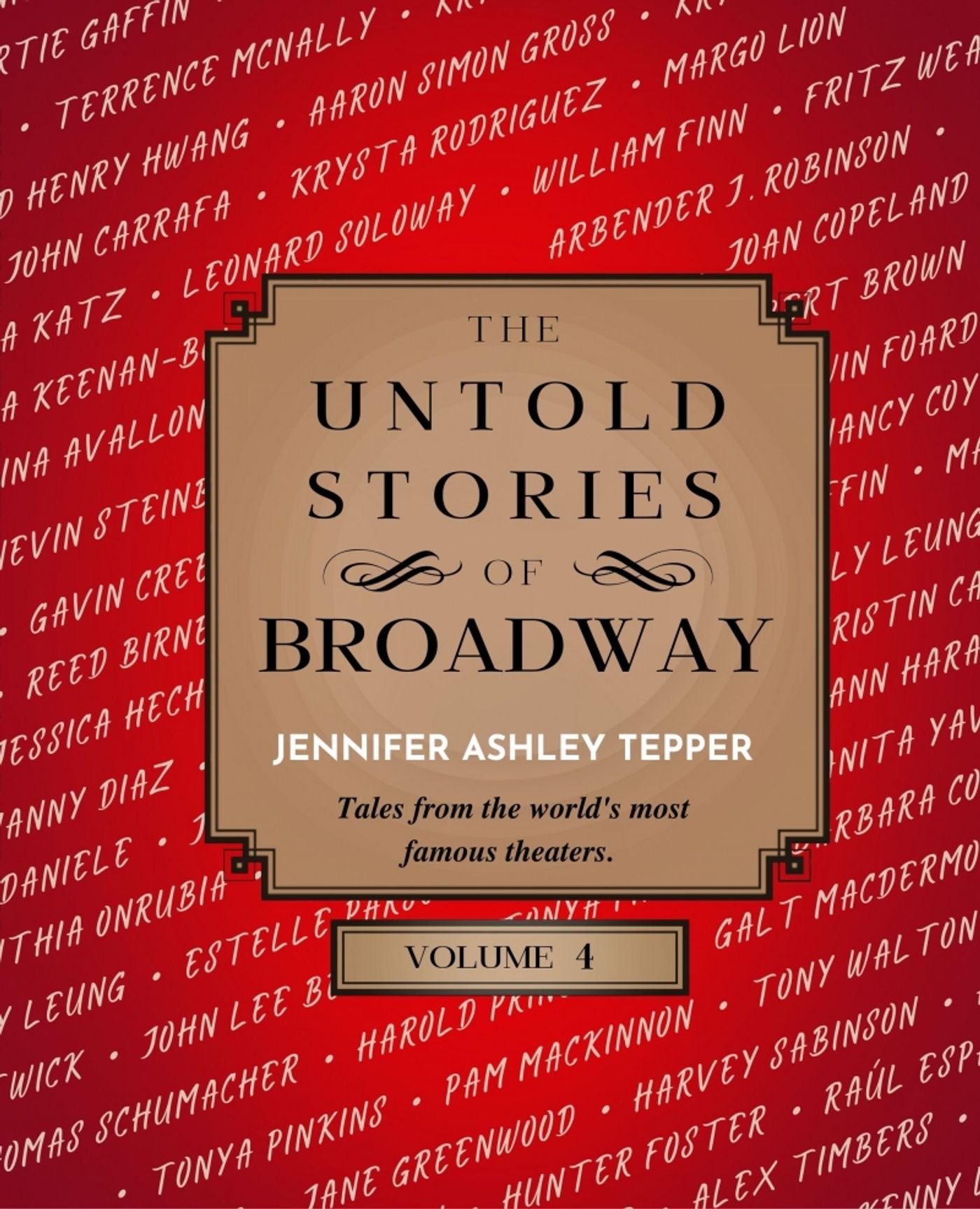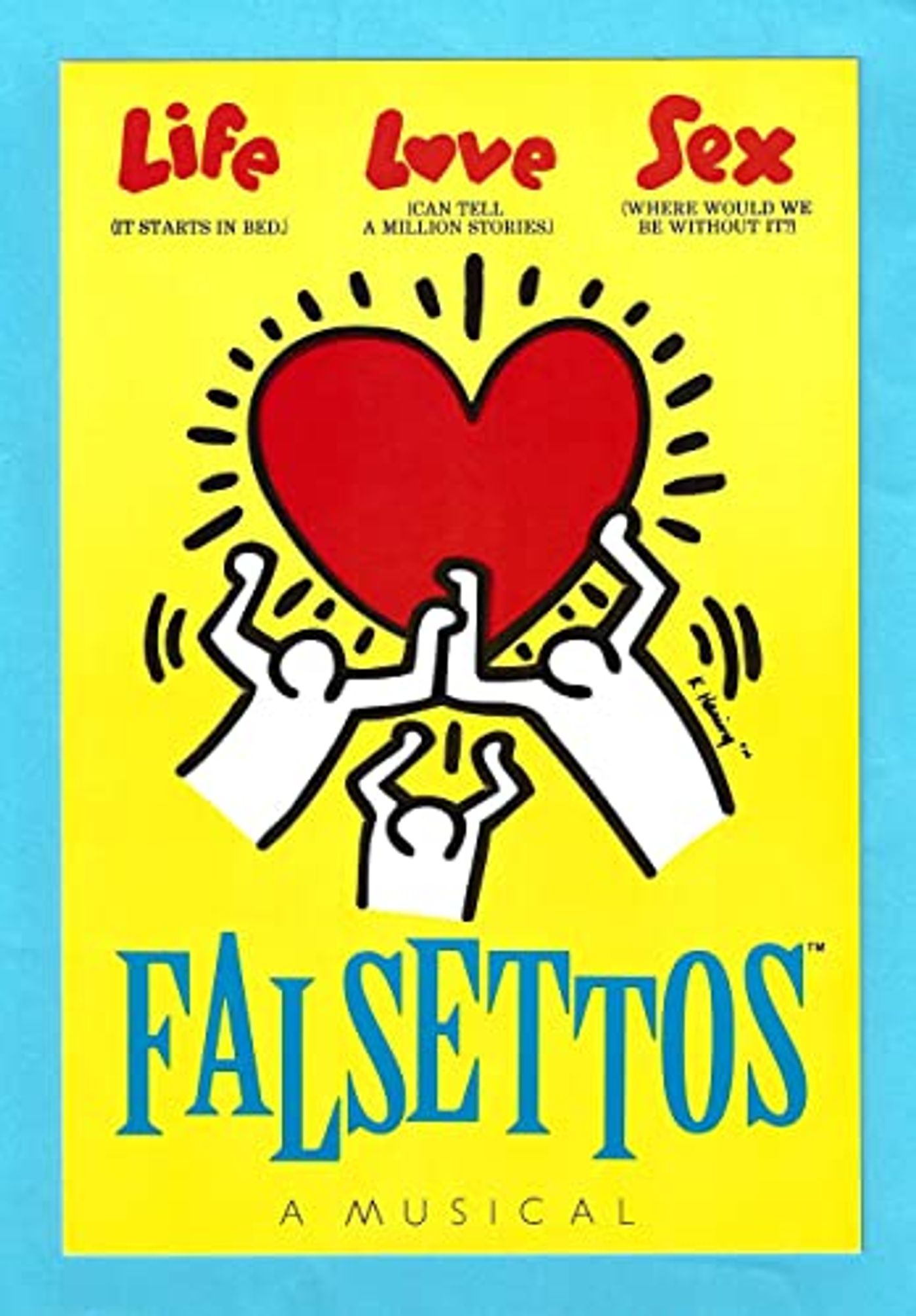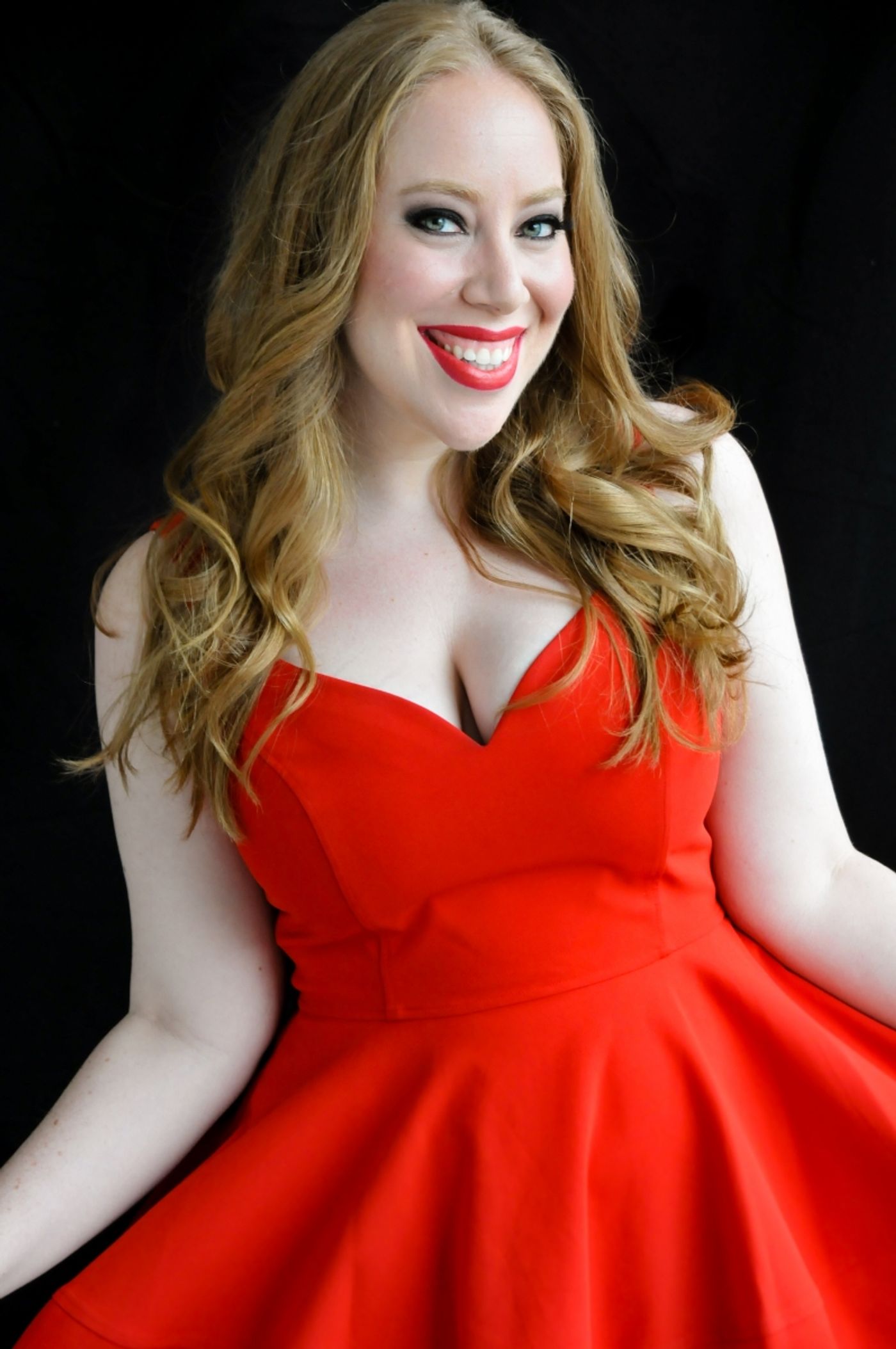BWW Exclusive: Read Jennifer Ashley Tepper's THE UNTOLD STORIES OF BROADWAY, VOLUME 4- Spotlight on The Golden Theatre
Did You Know: People told Terrence McNally that Master Class would never be a success?
 Earlier this month, Dress Circle Publishing released THE UNTOLD STORIES OF BROADWAY, VOLUME 4, the latest in a series by acclaimed historian and producer Jennifer Ashley Tepper. This landmark multi-volume series tells the stories of all of the theaters on Broadway; the new addition includes the beloved houses the Imperial, Jacobs, Studio 54, Minskoff, Friedman, and Golden, as well as the five Broadway theaters that were destroyed in 1982, changing the course of New York City history.
Earlier this month, Dress Circle Publishing released THE UNTOLD STORIES OF BROADWAY, VOLUME 4, the latest in a series by acclaimed historian and producer Jennifer Ashley Tepper. This landmark multi-volume series tells the stories of all of the theaters on Broadway; the new addition includes the beloved houses the Imperial, Jacobs, Studio 54, Minskoff, Friedman, and Golden, as well as the five Broadway theaters that were destroyed in 1982, changing the course of New York City history.
These invaluable books illuminate Broadway through the eyes of the producers, actors, stage hands, writers, musicians, company managers, dressers, designers, directors, ushers, door people and more who bring the theater to life each night.
Can't wait to get your hands on it? While you're waiting for your copy, let BroadwayWorld hold you over with a special sneak peek from a chapter all about the Golden Theatre:
The Golden Theatre
Did You Know: 21 musicals have played the Golden in its 93-year history, and six of these were in the 1970s?
First was Blood Red Roses, an angry anti-war musical that opened in 1970 amidst the rage of America's Vietnam War protests. The musical by Michael Valenti (music) and John Lewin (book and lyrics) was about the Crimean War, but the parallels were clear. Although the show took place in the 1850s, the anachronistic language of the show found the soldiers singing a number called "How F-cked Up Things Are" alongside gentle folk songs (like the title number) that transcended time to be about both wars.
Blood Red Roses closed on opening night and exactly one month later, Park opened. Park was a four-person musical that began life at Baltimore Center Stage. But rather than the old model where producers planned an out-of-town tryout elsewhere, Park was an example of a new model where producers picked up an authentically home-grown product and brought it to New York. The four characters in Park were called simply Man, Woman, Young Man, and Young Woman; it wasn't until halfway into act one that the audience found out they were a dysfunctional family. Critics felt Park was flimsy, and it closed in less than a week, despite some wonderful performances by Don Scardino, David Brooks, Joan Hackett, and Julie Wilson.
Unlike Blood Red Roses and Park, the next musical at the Golden was a title that had staying power-although it technically only stayed on Broadway for 32 performances. You're a Good Man Charlie Brown was a hit off-Broadway, running 1597 performances from 1967 to 1971, when it took a shot at Broadway-and flamed out in less than a month. While the reviews weren't terrible, most critics agreed that the show lost much of its charm and intimacy in the move, that the original Broadway cast didn't live up to the original off-Broadway cast, and that the show was more for kids than they originally thought. Those summations, increased running costs, and the fact that most everyone in New York had already seen Charlie Brown, contributed to the Broadway production's demise. Much like The Rocky Horror Show, Charlie Brown is a well-known hit musical worldwide-but which had a very short initial Broadway run.
In 1973, Shelter marked the first time a musical opened on Broadway by an all-female team.[1] Gretchen Cryer (book and lyrics) and Nancy Ford (music) made their Broadway bow together at the Golden after several off-Broadway productions. Cryer and Ford were known for their feminist, anti-war, liberal rock musicals and their most well-known success was with I'm Getting My Act Together and Taking it On the Road off-Broadway a few years later. But for their sole Broadway venture, Shelter was quite an entry. The show was a commentary on humans' increasing obsession with-and reliance on-technology, specifically their computers.
Words & Music (1974) was the rare revue by a songwriting great where the songwriter was actually onstage. Sammy Cahn was responsible for hits from "Three Coins in the Fountain" to "Thoroughly Modern Millie" but wasn't a household name the way some of his contemporaries were. The show, which charmed critics and audiences, ran for four months and featured Cahn and a cast of four singing his tunes. Christine Andreas made her Broadway debut as the female swing at age 22.
Going Up (1976) was originally produced at Goodspeed Opera House. After seeing recent success with transfers of Man of La Mancha and Shenandoah, producers were empowered to seek out potential Broadway projects at the Connecticut regional house, and thus came Very Good Eddie, Something's Afoot and Going Up, all within the span of a year. All were technically flops-but Goodspeed made a triumphant return to the Broadway sphere the following year with a hit called Annie.
Going Up was a revisal of a hit 1917 Broadway musical about a man who becomes an aviator in order to win the woman he loves, with music by Louis A. Hirsch and book and lyrics by Otto Harbach.[2]
Half of the musicals that played the Golden in the 1970s were envelope-pushers, breaking new ground for better or worse: Blood Red Roses, Park, and Shelter. The other half were squarely throwbacks and revivals: You're a Good Man, Charlie Brown, Words & Music, and Going Up.
Did You Know: The audience reaction for Falsettos was unlike that for any other show?
1992: Falsettos
Michael Rupert, Actor/Writer/Director
 When we were doing Falsettos at the Golden, there were a lot of people who were so moved by that little show that they just wanted to come back and be with us for a little bit. It wasn't a photo op. I remember some of them, like Paul Newman and Joanne Woodward, coming back. They just wanted to sit quietly and talk to us for a few minutes about what they had just seen. I thought: That's pretty cool.
When we were doing Falsettos at the Golden, there were a lot of people who were so moved by that little show that they just wanted to come back and be with us for a little bit. It wasn't a photo op. I remember some of them, like Paul Newman and Joanne Woodward, coming back. They just wanted to sit quietly and talk to us for a few minutes about what they had just seen. I thought: That's pretty cool.
The audience reaction was interesting for Falsettos. I would look out during the first act and see exactly how audience members felt. Since the band was onstage, there was no orchestra pit separating us from the front row, so those people were very, very close.
Falsettos dealt with gay people and gay relationships, and was really ahead of its time in terms of how it did so. But it wasn't like we had an exclusively gay audience. There were times when I would spot those Westchester straight middle-aged theatergoer types. By the end of the first act, the men's faces betrayed the feeling of: What did my wife get me into? Why am I at this theater, seeing this show about homosexuals and Jewish people screaming at each other?
By the end of the second act, I'd see those same people in tears because they were so moved by the show. It was very emotional for me to see that kind of reaction from people. By the end of Falsettos, they realized the story was about family, about relationships, and about people. It was about human beings, not just about gay people and Jewish people.
In 1992, when we did Falsettos at the Golden, we were still in the middle of the AIDS crisis. It was a big deal to be doing a show about that, in the midst of it. So many people, especially young and middle-aged men, approached us at the stage door and said things like, "I'm here in New York to go to Sloan Kettering because I'm HIV-positive," or "I can't tell you what this show means to me as someone with the disease." We also received letters from 16- or 17-year-olds who had come to the show and were figuring out how to come out of the closet to their families.
The show was a very moving experience to be a part of. And Falsettos was also a unique show in every respect. Bill Finn is a singular voice in the theatre. It's nice to feel like those of us who were involved with Falsettos will always have that. We'll always get to carry around that we were part of it. It was a special show.
Did You Know: People told Terrence McNally that Master Class would never be a success?

1995/2014: Master Class And Mothers And Sons
Terrence McNally, Writer
Sometimes you think you're writing a play that can't miss, and that the press is going to love it-and that's when you really get into big trouble. When I was writing Master Class, many people said to me, "The only people who are going to want to see this play are opera fanatics who love Maria Callas. Maybe there are 5000 people in the world who would want to see this play." I told them they were wrong. When I heard about a new play festival in Bigfork, Montana, I asked if we could bring Master Class there and premiere it. I don't know how I talked Zoe Caldwell into going there, but she did. We presented a reading, and at the end of it, an audience member asked if Maria Callas had been a real person. She and her friends had been debating about that.
Master Class is one of my most autobiographical plays. Emotionally it's how I feel about art. I think you do pay a certain price to work in the arts. I think you have to be a little selfish, and I think you have to be willing to pay a big price in order to be good, and I think there are a lot of sacrifices required. I really admire Maria Callas and I admire a lot of people who have worked very hard to achieve a level of excellence in the arts. I take theatre very seriously. I always think about that one person in the audience who hasn't been exposed to theatre yet and is experiencing it for the first time. We owe it to them to take every show seriously.
I met a woman at one point who told me, "You changed my life. I was working for a dentist as his receptionist and when I saw Master Class, I decided I wanted to change my life and work in the arts." Now she's a receptionist at New 42.[3] Plays can transform lives. She didn't see the play and think: I want to become an opera singer! or I want to write a play or paint the Sistine Chapel! She just thought: I want to be near other art, and help the arts rather than help a dentist make appointments.
Master Class was a bit hit in Montana, so I had confidence it would do well in New York. We brought the show first to the Mark Taper and then the Kennedy Center, and the play fully returned its capitalization before we came to New York. That made the producers happy. I try to think and behave like an artist, but I'm aware that it's called show business and that a play that closes at a loss of millions of dollars hurts a lot of people. That saddens me. I love it when my plays pay back. I don't write plays to pay back but I love it when someone is able to say they got their investment back, because they believed in the project and it was able to do well.
If someone asked me, "Where did theatre go wrong?" I would say: "The minute people started charging admission! The Greeks did it right. Theatre was free. You walked up the hill and experienced stories and myths in a presentation. Everyone in Greece knew the story of Medea. So I blame the Elizabethan Shakespeare era for where we're at today. They started charging. That makes things competitive and exclusive.
I returned to the Golden two decades after Master Class with Mothers and Sons. I'm very proud of Mothers and Sons and I'm very glad that I wrote it. I have few regrets in the theatre. I've had as many failures as I've had successes, but it's important to be proud of all of your work.
[1] The previous year, a musical had opened on Broadway entirely written by one woman; Micki Grant penned book, music, and lyrics for Don't Bother Me, I Can't Cope.[2] Some interpolated numbers had lyrics by Gene Buck, Rennold Wolf, or Al Jolson.
[3] New 42: short-hand for New 42 Studios, a rehearsal space on 42nd Street
To order THE UNTOLD STORIES OF BROADWAY, visit www.dresscirclepublishing.com.
 Jennifer Ashley Tepper is producer of the musicals Be More Chill, Broadway Bounty Hunter, and Love in Hate Nation, recent projects that are part of a decade-long collaboration with the group known as Joe Iconis & Family. From producing small concerts in basements to producing a show on Broadway, Tepper has cultivated the theatrical collective which The New York Times called "the future of musical theatre." She is also the Creative and Programming Director at Feinstein's/54 Below, where she has curated or produced over 3,000 shows, including musicals in concert, original solo acts, theatrical reunions, songwriter celebrations, and more. Tepper's leadership at the venue has gained praise from publications including The New York Times, Huffington Post, Buzzfeed, Playbill, Newsday, New York Post, and more.
Jennifer Ashley Tepper is producer of the musicals Be More Chill, Broadway Bounty Hunter, and Love in Hate Nation, recent projects that are part of a decade-long collaboration with the group known as Joe Iconis & Family. From producing small concerts in basements to producing a show on Broadway, Tepper has cultivated the theatrical collective which The New York Times called "the future of musical theatre." She is also the Creative and Programming Director at Feinstein's/54 Below, where she has curated or produced over 3,000 shows, including musicals in concert, original solo acts, theatrical reunions, songwriter celebrations, and more. Tepper's leadership at the venue has gained praise from publications including The New York Times, Huffington Post, Buzzfeed, Playbill, Newsday, New York Post, and more.
On Broadway, Tepper has worked on [title of show], The Performers, Godspell, Macbeth, and The Parisian Woman, and off-Broadway Smokey Joe's Café and Boys' Life. Tepper is the conceiver and director of The Jonathan Larson Project which premiered in fall 2018 and received an original cast recording from Ghostlight Records. She is historian consultant on the upcoming tick, tick... BOOM! movie and co-creator of the Bistro Award-winning concert series, "If It Only Even Runs A Minute," now in its 11th year. Tepper recently received a 2020 Lincoln Center Emerging Artist Award. She was named one of the 10 professionals on Backstage's first annual "Broadway Future Power List," which stated: "Proving herself both a zeitgeist predictor and theatrical historian with her eclectic programming, Tepper is leading the conversation on contemporary musical theatre."
Comments
Videos


